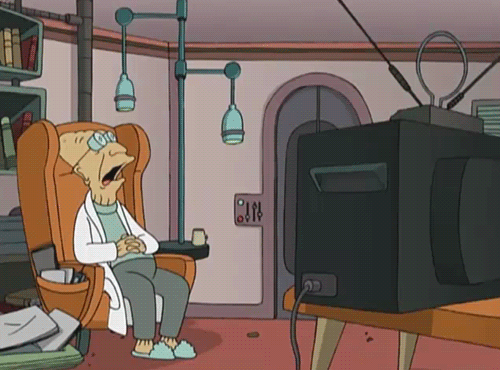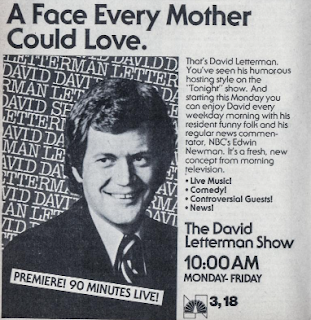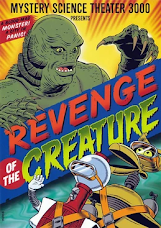With tensions between the United States and Canada running high at the moment, it seems appropriate to lead off this week with an article from Gordon Sinclair, the legendary Canadian journalist who in 1973 will become famous south of the border for his editorial on behalf of America at a time when the rest of the world is taking potshots at her. He's writing on the state of Canadian television, which he describes as "green," as it was in America a few years before; "there's no doubt that the future is just as bright" but at this moment, don't expect to see "the same slick technique you get in the States." Indeed, TV in Canada is still a little rough around the edges: "Our scripts are pedestrian, our crews are inexperienced and our directors seem hesitant to direct. Or even to suggest to performers older than themselves how to play a scene better."
Canadians produce 38 hours of network television each week, ranking third behind Hollywood and New York. Canadians have produced stars of American television, including Lorne Greene, Gisele MacKenzie and Barry Morse. (But no William Shatner?) Canadian shows have their share of curvy females, including Joan Fairfax and Shirley Harmer. But American television is still more popular than many home-grown shows; one of those native shows, Cross Canada Hit Parade (similar to Your Hit Parade in the States) is a twice-weekly musical showcase. A guest star ("usually American") is invited to sing a top record; MacKenzie, Canada's "most glittering expert in the field of song," has never appeared on the show. She was offered as much as $2,000 for a one-shot, but "showed no interest." And Fairfax, who was once voted "Miss Canadian Television" (because of her picture tubes?) has a Monday variety hour she co-hosts with Denny Vaughan, but it's beaten in the ratings by Robert Montgomery Presents; "You see, American programs are highly popular north of the border."
One of Canadian television's sitcoms, the French-Canadian Plouffe Family, is unique in that "it must be the only dramatic show on earth bradcast in two languages by the same cast playing the identical parts." A nice trick if you can pull it off. And there's the comic team of Johnny Wayne and Frank SHuster, "who are vulgar or delightful, depending on how you feel about such stuff." (Ed Sullivan was one who obviously expressed the latter; he had the two on his show 58 times.) On the Jackie Rae Show, he says, Canadians occasionally get the unexpected—along with imported guests. There are even what Sinclair describes as "fleeting glimpses of high comedy," which means Canada's Jackie doesn't really measure up to America's Jackie (Gleason, that is). Don't despair, thoughf: Sinclair suggests Canadian television will one day thrive. After all, even the Canadian Broadcasting Corporation, the government-run entity that "frowns on press agentry and commercial exploitation" hasn't been able to completely subdue the spirit of Canadian TV.
Where, I wonder, is today's Gordon Sinclair? We could certainly use him, on both sides of the border.
l l l
After that, we go down south to Nashville, and visit the Grand Ole Opry. The Opry is already an American institution, having started in 1925, and what's surprising about its transition to television is not that it's happened, but that it took this long. The 1955-56 fall season brought about the premiere of the Opry on ABC, where once a month it substitutes for Ozark Jubilee, another Country-Western program, and in rural areas (which, remember, make up a much larger part of America in 1956 than they do today), it is absolutely slaughtering the competition, Perry Como and Jackie Gleason.
This week's article takes a kind of quaint approach to the whole thing, pointing out that these Country stars are just as business-savvy as anyone—hardly surprising considering how successful the Grand Ole Opry has been over the years; and when you think of how big Country music has become as a business, I think it shows these "hayseeds" have always been pretty shrewd business people.
l l l
Two new soap operas premiered last week on CBS, and they're unusual in that they run for 30 minutes, rather than the traditional 15-minute format (a carryover from radio; you notice a lot of shows fit into that category). You might have heard of them: As the World Turns and The Edge of Night. Incidentally, The Edge of Night started out as "the daytime version of Perry Mason," with Mason creator Erle Stanley Gardner writing it, but the notoriously temperamental Gardner pulls out due to "creative differences,"* and the character of the heroic lawyer is changed from Mason to Mike Karr, played by John Larkin, who played Mason on the radio.
*According to the always-reliable Wikipedia, those differences include Mason having a regular girlfriend, which throws into question that intriguing relationship with his secretary, Della Street. That's something Gardner, who jealously guarded Mason's image, would never agree to.
Speaking of the great lawyer, there's an interesting item in this week's Hollywood Teletype: "If everybody can agree on the contracts, Fred MacMurray will wind up as lawyer Perry Mason in the new CBS hour-long detective series." Discussions had gotten to the point that a Gardner memo states, "Apparently Fred MacMurray is the person who will probably be selected." It's an intriguing thought; like Burr, MacMurray had played many the heavy in movies up to that time (and would continue to do so; check him out in The Apartment), and there are many who think that Burr brought, from those roles as a heavy, an underlying sense of menace that gave his Mason, especially in the early seasons, a real edge of danger. Could MacMurray have done the same? He was certainly talented enough, but when Burr finally had the chance to audition for the role (he'd previously been tried as Hamilton Burger), he is said to have so impressed Gardner that he told Bur, "In twenty minutes, you captured Perry Mason better than I did in twenty years." That, presumably, was the end of that.
l l l
Baseball is back! Well, kind of; it's still Spring Training, but on Saturday the New York Giants take on the Cleveland Indians in a pre-season game live from Dallas, home of this week's TV Guide. (1:25 p.m. CT, CBS). Dizzy Dean and Buddy Blattner call the action. It's not the big sports story of the weekend, though; that would be the final round of the Masters Golf Tournament, live from Augusta, Georgia. (Sunday, 4:00 p.m., CBS) It's the first time for the Masters on television (and the start of the tournament's long association with CBS), and the first major championship for Jack Burke Jr., who came from eight shots behind to defeat amateur Ken Venturi by one stroke. It remains the last time no golfer broke par for the tournament.
There's some real star power in this week's shows. On Saturday night's Ford Star Jubilee (9:30 p.m., CBS), Orson Welles and Betty Grable make rare television appearances in the comedy "Twentieth Century," written by the famed Broadway duo of Ben Hecht and Charles MacArthur. Welles would come to do a lot of television in the last couple of decades of his life—remember those cheesy appearances on the Dean Martin roasts and the commercials for Paul Masson wine? ("We will sell no wine before its time.")—but in 1956 he was still a star, known for The War of the Worlds and Citizen Kane and The Third Man, and still two years away from his noir classic Touch of Evil. Ah, one has to pay the bills, however, and Welles was always looking for money for his latest projects, many of which sadly never came to fruition. As he once famously said, "I hate television. I hate it as much as peanuts. But I can't stop eating peanuts."*
*By the way, if you're interested in absorbing article on Welles, check out this New Yorker piece by Alex Ross from ten years ago, celebrating the Welles centennial. It truly seems as if Orson Welles could only have been a character concocted in an Orson Welles movie.
On Sunday afternoon the American composer Norman Dello Joio premieres his opera "The Trial at Rouen" on NBC Opera Theatre (3:00 p.m.). It's Dello Joio's second crack at rendering an operatic version of the story of Joan of Arc. His first, "The Triumph of St. Joan," premiered in 1950, but Dello Joio was never happy with it, and eventually reworked the story (but neither the music nor the libretto) into the 75-minute opera (plus commercials) that you'd be seeing on television. There's yet a third version to come, however, as Dello Joio will add some of the music from the 1950 version to the 1956 version while creating some new scenes and expanding on others, resulting in the 1959 version, also called "The Triumph of St. Joan." Many of the critics of the time will consider it to be the best of the three versions of the story.
That night, G.E. Theater (8:00 p.m., CBS) presents Judy Garland in an informal one-woman show, performing a half-hour of songs she's never before done in public, and backed by pianist Leonard Pennario and choreographer Peter Gennaro (who did Annie, West Side Story and The Unsinkable Molly Brown, among other Broadway hits). It's introduced by host Ronald Reagan.
If you happen to own the boxed set of Studio One episodes that came out a few years ago, you'll have seen the Rod Serling political drama "The Arena," airing Monday night (9:00 p.m., CBS), with Wendell Corey as an ambitious young senator dealing with the legacy (and feuds) of his father. (If not, you can watch it here.) You might have thought, watching it, that it was substandard Serling, one of the episodes that helped drive him to create The Twilight Zone. The problem, as he writes in his 1957 collection of television plays Patterns: Four Television Plays With The Author’s Personal Commentaries, is not a new one: interference from the network and sponsors. His reaction, however, shows us the direction he is already considering going:
I was not permitted to have my Senators discuss any current or pressing problem. To talk of tariff was to align oneself with the Republicans; to talk of labor was to suggest control by the Democrats. To say a single thing germane to the current political scene was absolutely prohibited. So on television in April 1956, several million viewers got a definitive picture of television’s concept of politics and the way government is run. They were treated to an incredible display on the floor of The United States Senate of groups of Senators shouting, gesticulating and talking in hieroglyphics about make-believe issues, using invented terminology, in a kind of prolonged, unbelievable double-talk… In retrospect, I probably would have had a much more adult play had I made it science fiction, put it in the year 2057, and peopled the Senate with robots. This would probably have been more reasonable and no less dramatically incisive.
I suspect this episode was included in the DVD collection because 1) it was Serling, and 2) it was in fairly good condition. There are likely better episodes that could have been chosen. "The Arena" isn't bad, mind you, but far from peak Serling.
Dinah Shore currently hosts a twice-weekly 15-minute show (Tuesday and Thursday evenings on NBC, filling the remainder of the half hour occupied by John Cameron Swayzee's News Caravan), but she's talking about dumping that in favor of an hour-long Tuesday night show; another idea is to keep the current show, while adding a number of hour-long specials. The latter gets a tryout tonight (7:00 p.m., NBC), with Dinah welcoming Dean Martin and Marge and Gower Champion. As it turns out, nothing could be finah than to catch an hour of Dinah: The Dinah Shore Chevy Show starts up this October, and runs until 1963. (Her 15-minute show, which airs at 6:15 p.m. tonight, is guest-hosted by Gordon MacRae.) And, in the "you might be interested" category, a note on The 64,000 Question (9:00 p.m, CBS) tells us that, "As of the 43rd show, emcee Hal March has given out $544,608 and nine luxury automobiles."
On Wednesday, M-G-M Parade (7:30 p.m., ABC) presents "The Greatness of Garbo," the conclusion of a two-part tribute to the legendary star. (Presumably, Garbo speaks.) Parade is the subject of Robert Sanders' review this week, which isn't a positive one; last month, Walter Pidgeon had been introduced as the new host, and the format of the show had been altered to present serialized versions of movies along with clips from the M-G-M vault. The problem, Sanders says, is that this doesn't produce any new material for television; the studio execs seem to "presumptously believe that viewers will be eager to watch their old hit movies and promotional plugs for new movies." And when movies are chopped up into two or three parts, "viewers cannot help but lose interest." Anyway, it only has another month to run. One story you'll get to see all at once is "The Funny Heart," tonight's presentation on The U.S. Steel Hour (9:00 p.m., CBS), with Imogene Coca, the female side of the team that made Your Show of Shows such a success, making her dramatic television debut.
Thursday we see another of those shows that we likely won't see today, The All-American Homemaker of Tomorrow (7:00 p.m., ABC), sponsored by Betty Crocker, with the aforementioned Hal March on hand to crown the winner (or whatever is was they did). The competition, which was comprised of high school students who'd won similar competitions at the local level, began in 1955, and ran through 1977. You might be interested to know that one of the future contestants will be now-Senator Elizabeth Warren, competiting in 1966 as the representative from Northwest Classen High School in Oklahoma City. Meantime, Shower of Stars (7:30 p.m., CBS) presents a review of current musical trends, with Frankie Lane and Joe E. Brown sharing the hosting duties.
On Friday, John Newland, who we'll come to know better as the host of One Step Beyond, stars in "The Bitter Land" on Schlitz Playhouse of Stars (8:00 p.m., CBS), as a father heading West to revenge the death of his son during a bank robbery. Later, Edward R. Murrow interviews pollster George Gallup on Person to Person (9:30 p.m., CBS), discussing the exotic art of measuring public opinion. It was probably just as accurate then as it is today.
Finally, there's a small ad on the bottom of Wednesday's listings referring to the social event of the year, perhaps the television event of the year, with the provocative question: "How much will you see?"
That event is the marriage of the Academy Award-winning actress Grace Kelly to Prince Rainier of Monaco, and everybody who's anybody will be heading over there to cover it. At the end of this week's What's My Line?, John Daly mentions that both Dorothy Kilgallen and Arlene Francis will be in Monaco to cover the wedding (Dorothy for the New York Journal American, Arlene for her Home show on NBC), and a worldwide audience estimated at 30 million tunes in for the formal ceremony on April 19.
It's an interesting mix of attendees; with Rainier as a head of state, a vast assemblage of diplomats and other heads of state are present, while Grace's status as Hollywood royalty attracts such luminaries as Cary Grant (who costarred with her in the Monaco-based To Catch a Thief), David Niven, Gloria Swanson, Ava Gardner and Aristotle Onassis, and her iconic wedding dress is designed by MGM's Helen Rose.* In essence, this is Charles and Di before Charles and Di.
*According to the always-reliable Wikipedia, this dress was the inspiration for that worn by Kate Middleton for her wedding to Prince William.
There are actually two marriage ceremonies; the first, a civil ceremony required by law, was held on April 18, while the Catholic Nuptial Mass, the televised event, was held the following day at St. Nicholas Cathedral. I'm not sure of the answer to TV Guide's question of how much viewers will see, but here's a brief look at what all the shouting was about. TV








































